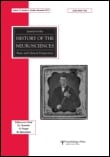Hebb and Vygotsky are two of the most influential figures of psychology in the first half of the twentieth century. They represent cultural and biological approaches to explaining human development, and thus a number of their ideas remain relevant to current psychology and cognitive neuroscience. In this article, we examine similarities and differences between these two important figures, exploring possibilities for a theoretical synthesis between their two literatures, which have had little contact with each other.
